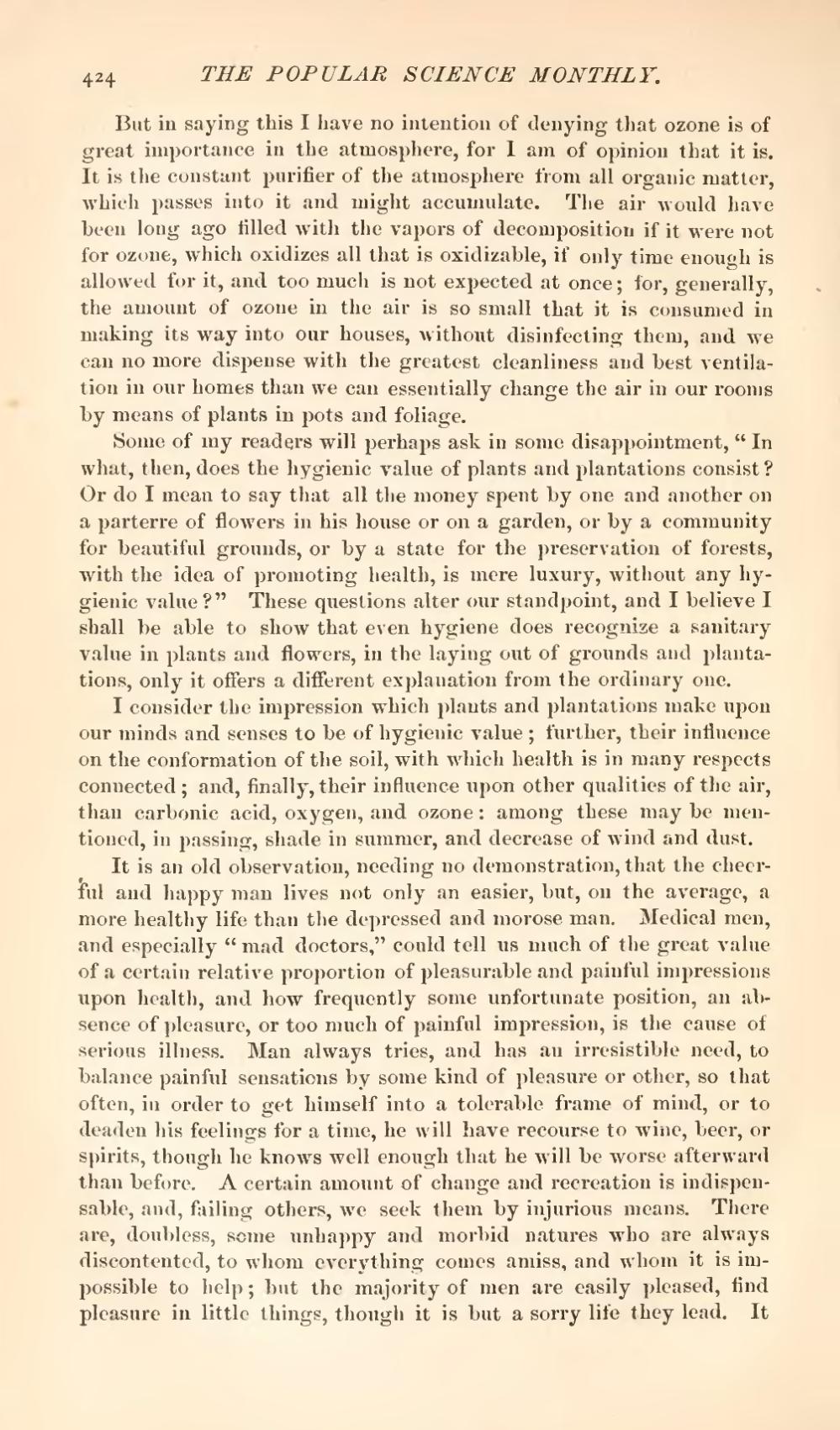But in saying this I have no intention of denying that ozone is of great importance in the atmosphere, for I am of opinion that it is. It is the constant purifier of the atmosphere from all organic matter, which passes into it and might accumulate. The air would have been long ago filled with the vapors of decomposition if it were not for ozone, which oxidizes all that is oxidizable, if only time enough is allowed for it, and too much is not expected at once; for, generally, the amount of ozone in the air is so small that it is consumed in making its way into our houses, without disinfecting them, and we can no more dispense with the greatest cleanliness and best ventilation in our homes than we can essentially change the air in our rooms by means of plants in pots and foliage.
Some of my readers will perhaps ask in some disappointment, "In what, then, does the hygienic value of plants and plantations consist? Or do I mean to say that all the money spent by one and another on a parterre of flowers in his house or on a garden, or by a community for beautiful grounds, or by a state for the preservation of forests, with the idea of promoting health, is mere luxury, without any hygienic value?" These questions alter our standpoint, and I believe I shall be able to show that even hygiene does recognize a sanitary value in plants and flowers, in the laying out of grounds and plantations, only it offers a different explanation from the ordinary one.
I consider the impression which plants and plantations make upon our minds and senses to be of hygienic value; further, their influence on the conformation of the soil, with which health is in many respects connected; and, finally, their influence upon other qualities of the air, than carbonic acid, oxygen, and ozone: among these may be mentioned, in passing, shade in summer, and decrease of wind and dust.
It is an old observation, needing no demonstration, that the cheerful and happy man lives not only an easier, but, on the average, a more healthy life than the depressed and morose man. Medical men, and especially "mad doctors," could tell us much of the great value of a certain relative proportion of pleasurable and painful impressions upon health, and how frequently some unfortunate position, an absence of pleasure, or too much of painful impression, is the cause of serious illness. Man always tries, and has an irresistible need, to balance painful sensations by some kind of pleasure or other, so that often, in order to get himself into a tolerable frame of mind, or to deaden his feelings for a time, he will have recourse to wine, beer, or spirits, though he knows well enough that he will be worse afterward than before. A certain amount of change and recreation is indispensable, and, failing others, we seek them by injurious means. There are, doubless, some unhappy and morbid natures who are always discontented, to whom everything comes amiss, and whom it is impossible to help; but the majority of men are easily pleased, find pleasure in little things, though it is but a sorry life they lead. It

